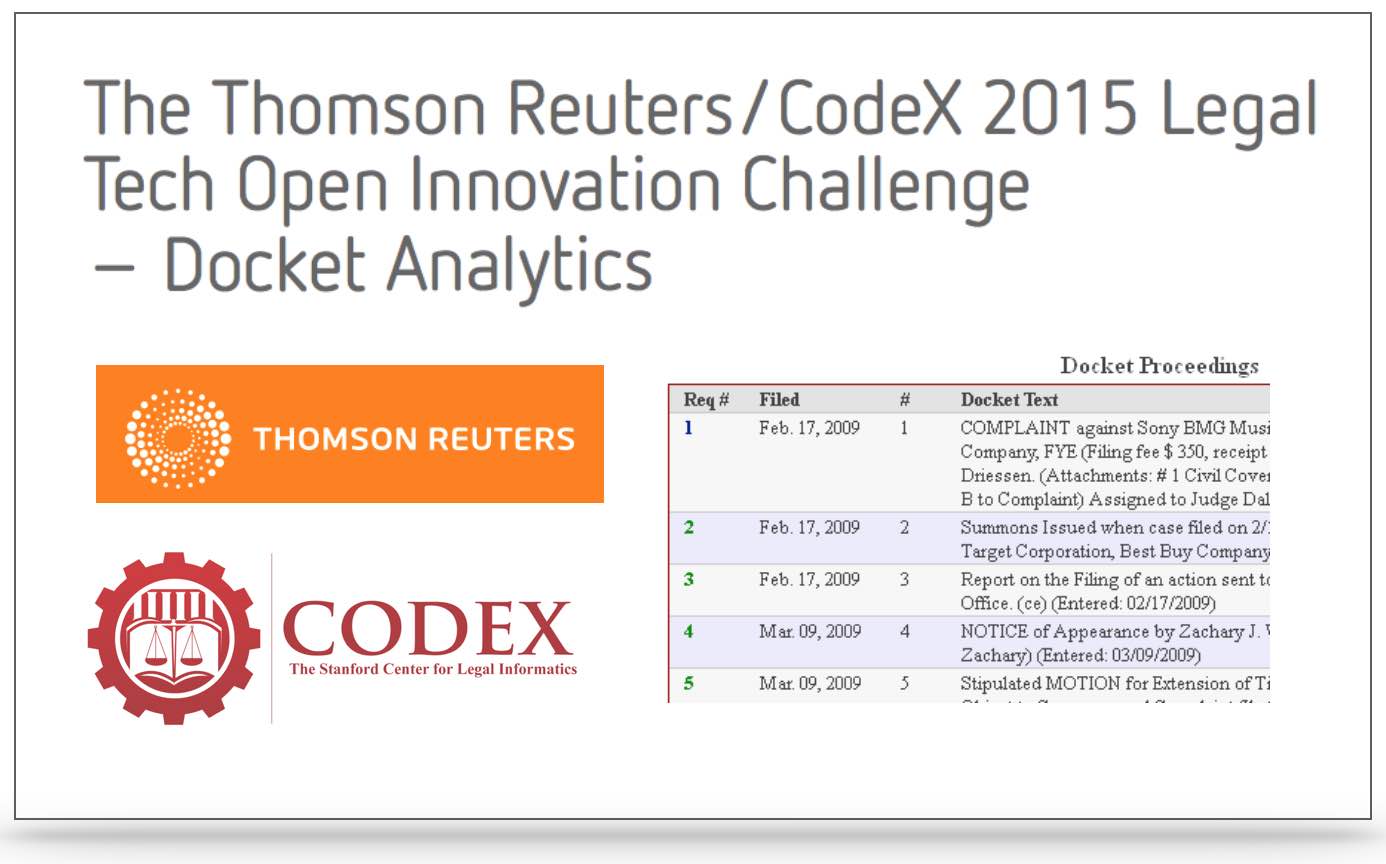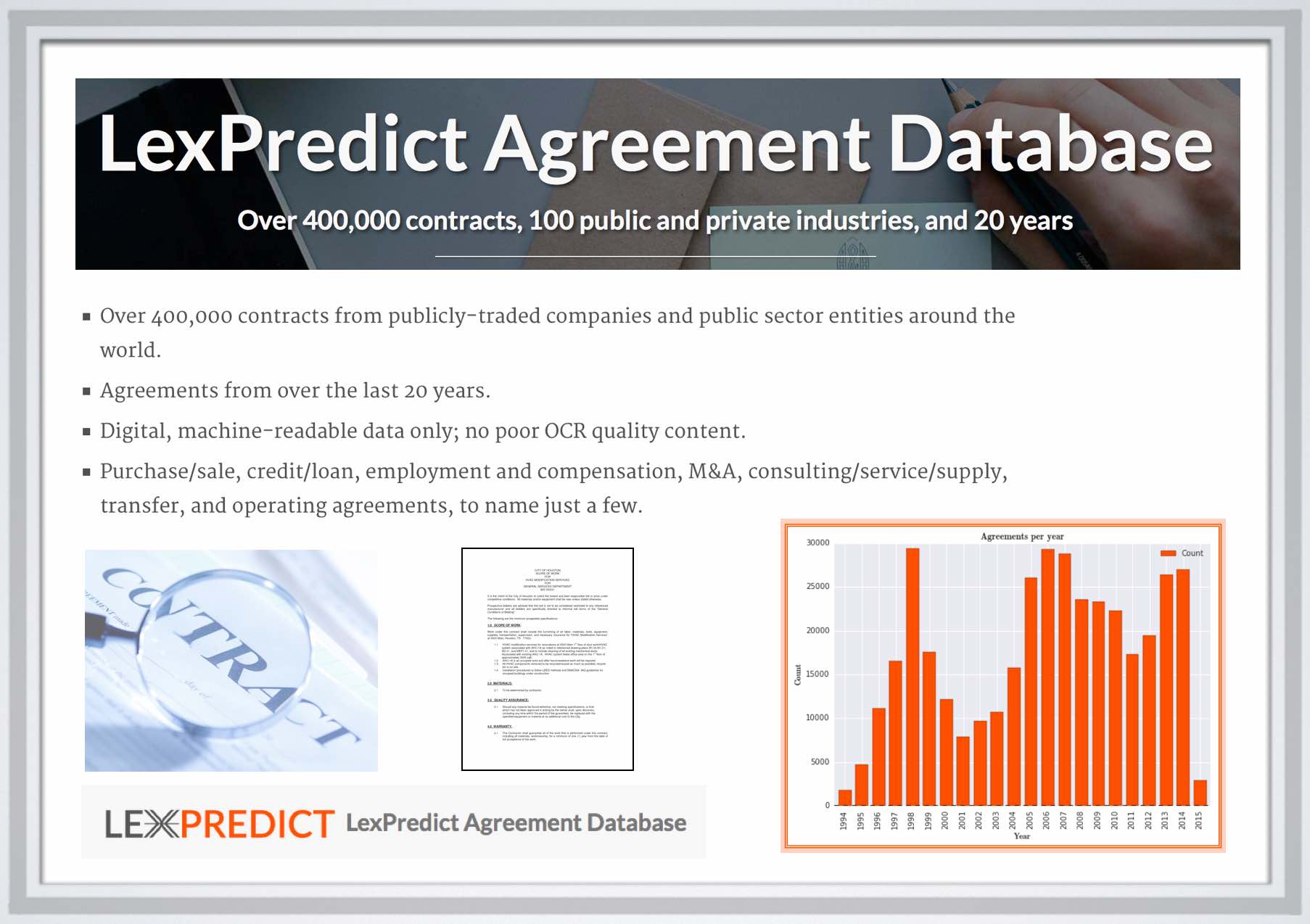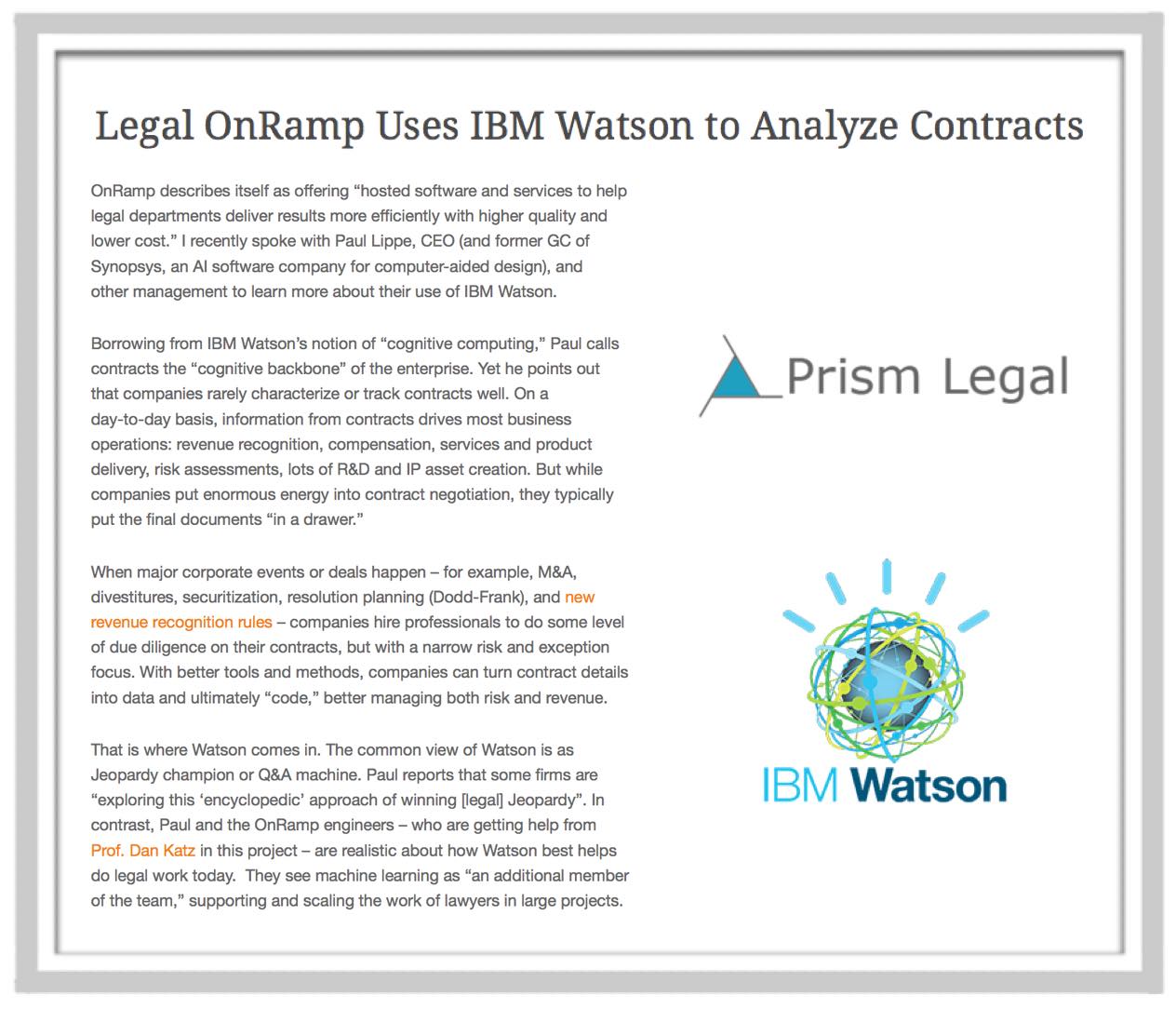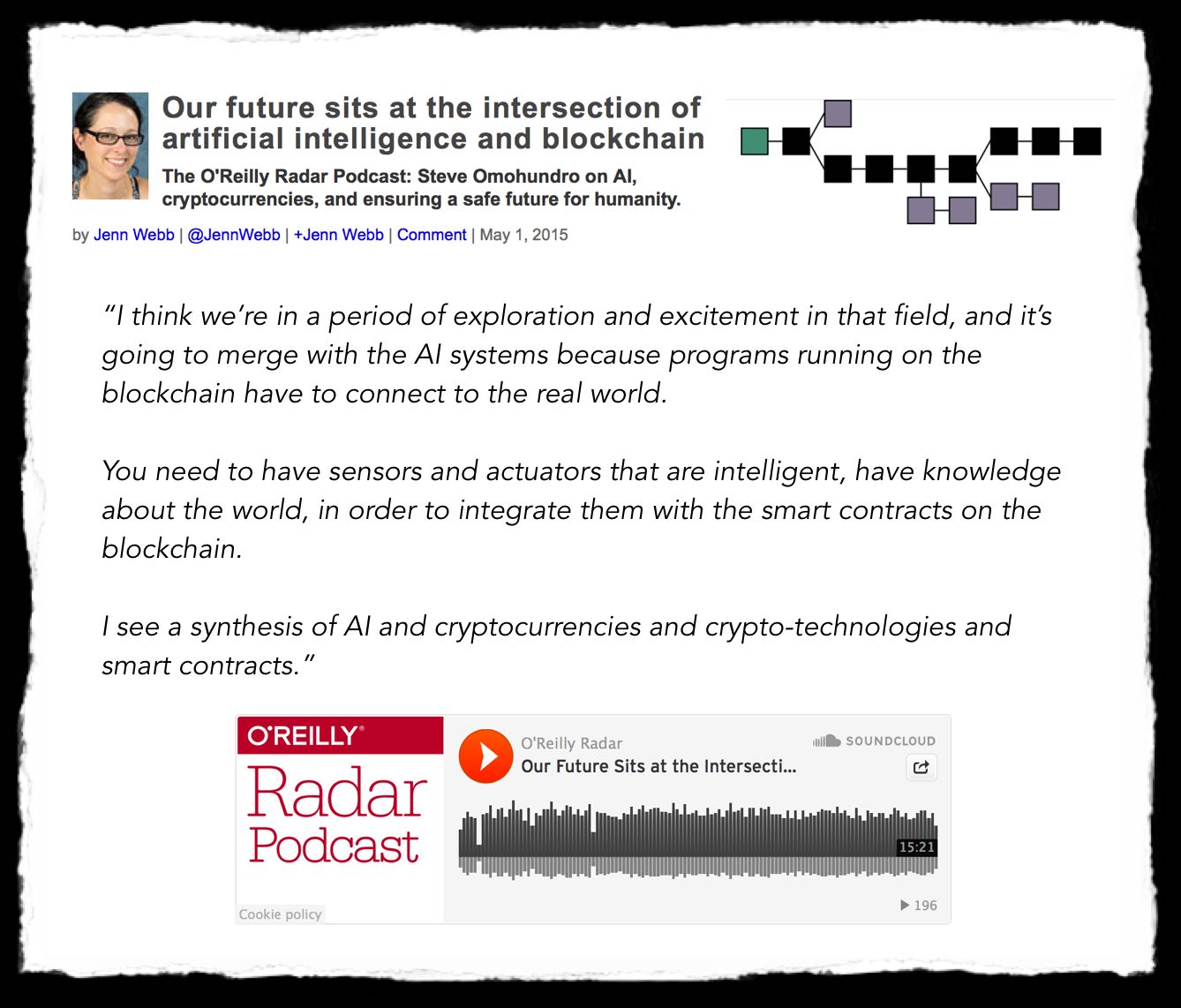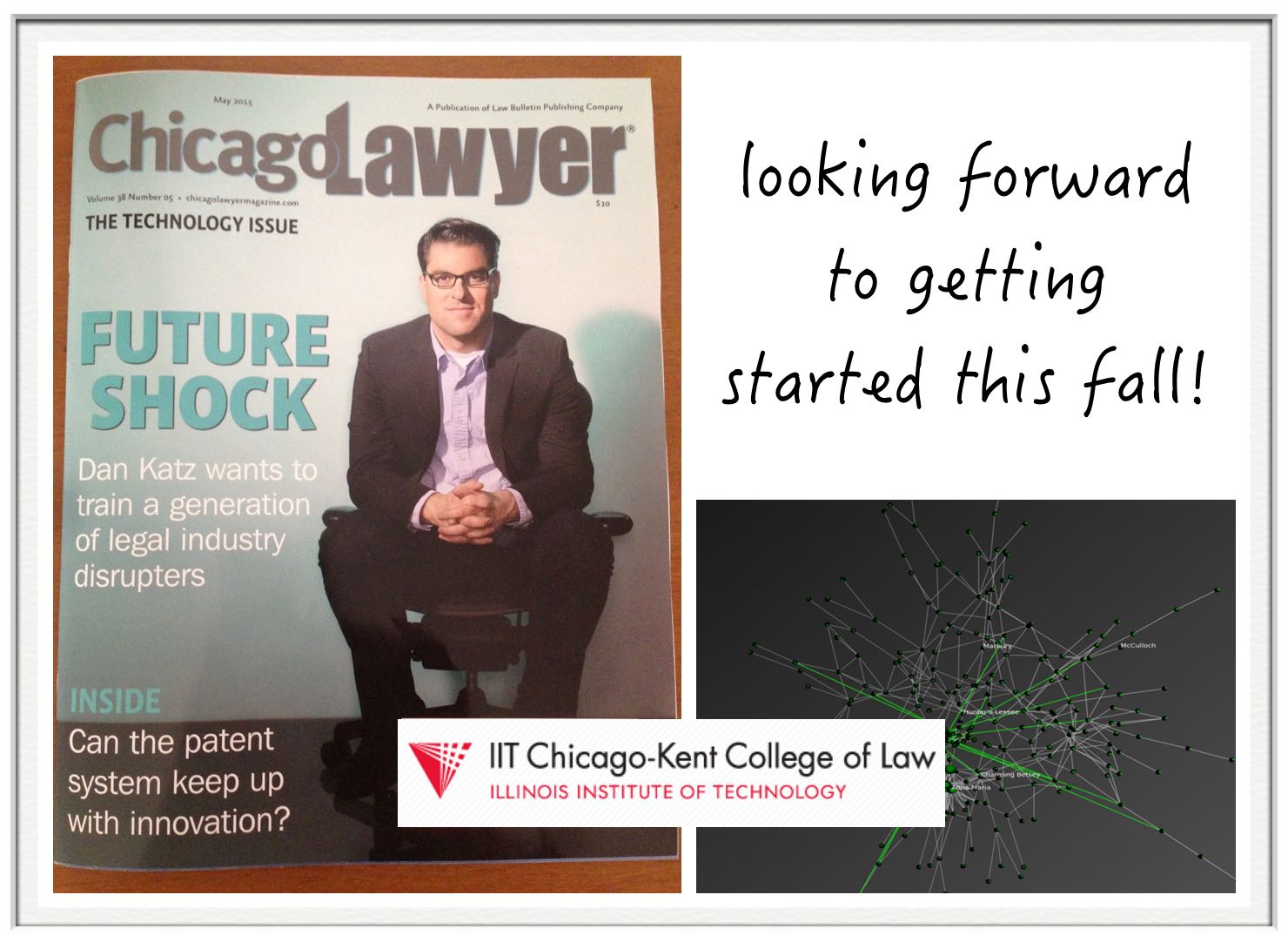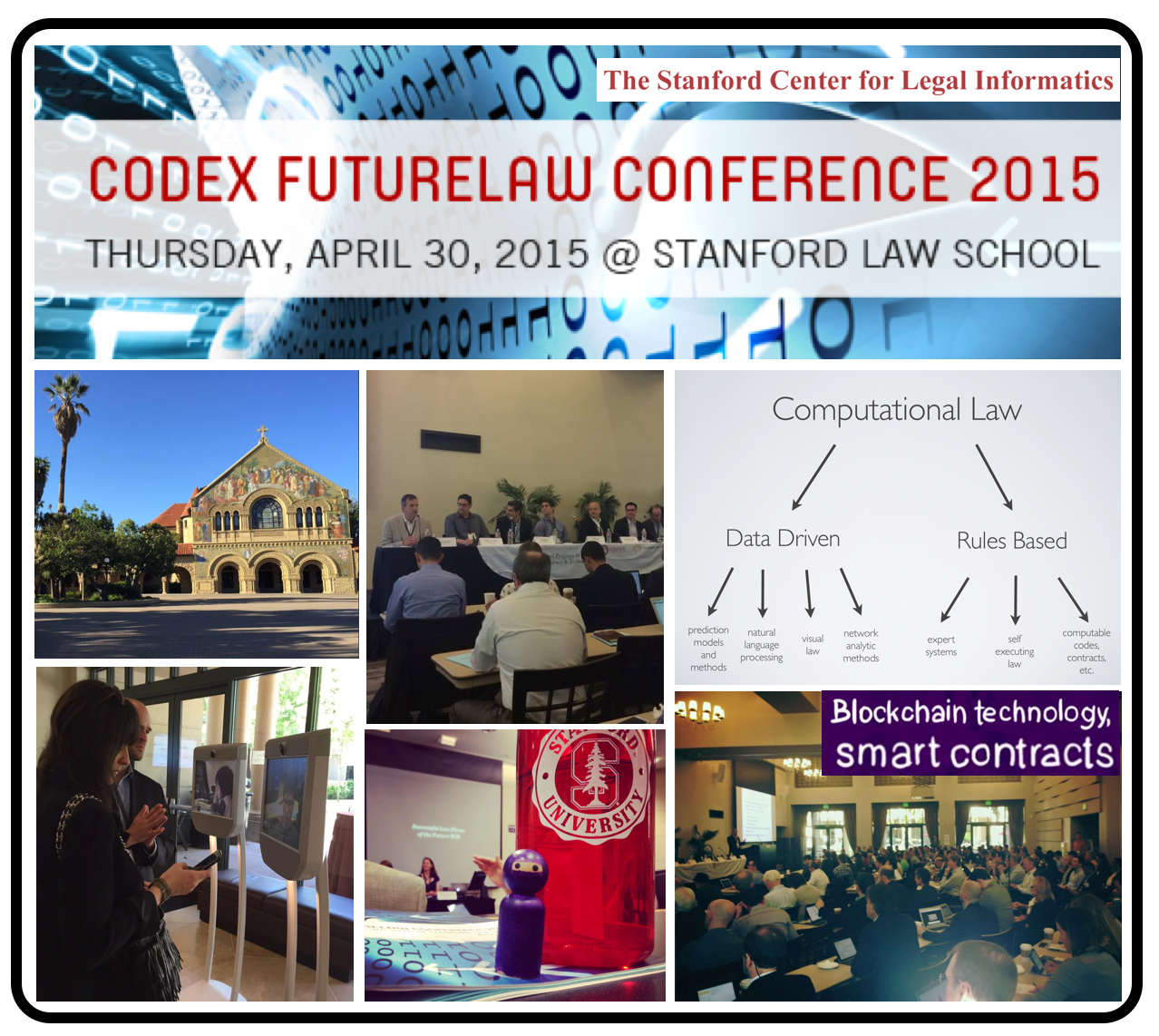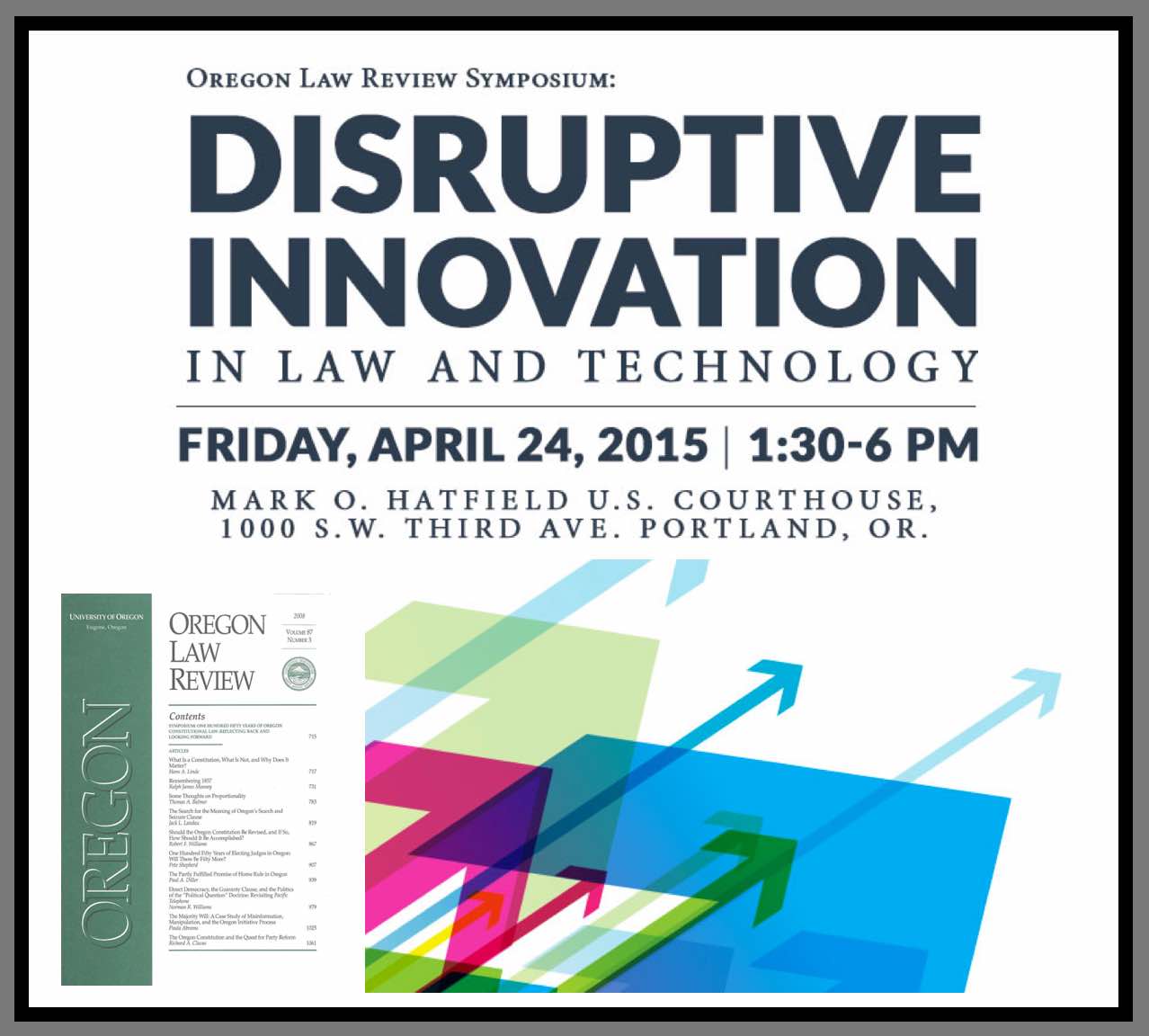Tag: artificial intelligence and law
Econometrics (hereinafter Causal Inference) versus Machine Learning
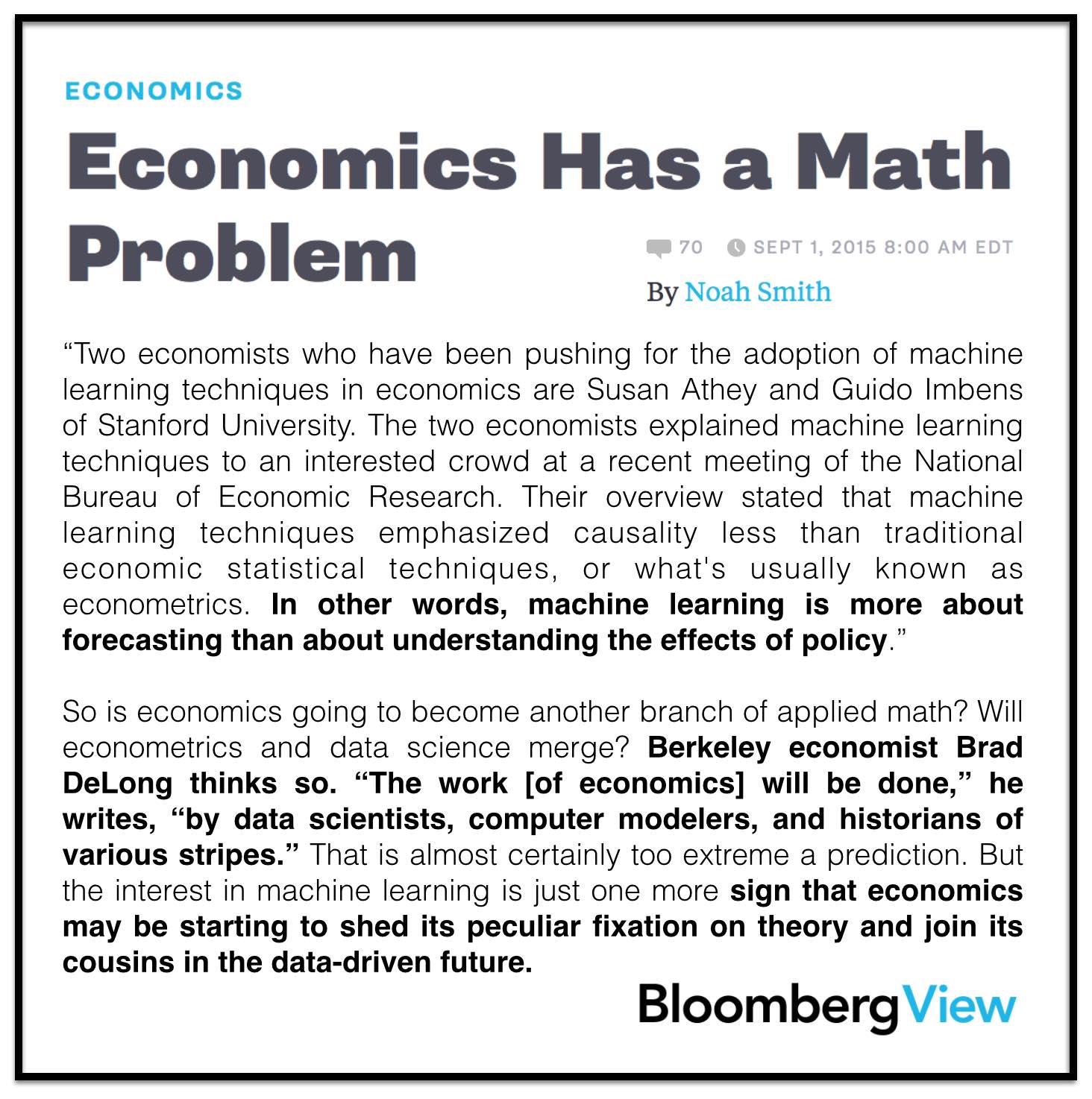 Perhaps some hyperbolic language in here but the basic idea is still intact … for law+economics / empirical legal studies – the causal inference versus machine learning point is expressed in detail in this paper called “Quantitative Legal Prediction.” Mike Bommarito and I have made this point in these slides, these slides, these slides, etc. Mike and I also make this point on Day 1 of our Legal Analytics Class (which really could be called “machine learning for lawyers”).
Perhaps some hyperbolic language in here but the basic idea is still intact … for law+economics / empirical legal studies – the causal inference versus machine learning point is expressed in detail in this paper called “Quantitative Legal Prediction.” Mike Bommarito and I have made this point in these slides, these slides, these slides, etc. Mike and I also make this point on Day 1 of our Legal Analytics Class (which really could be called “machine learning for lawyers”).
Your Lawyer May Soon Ask This AI-Powered App for Legal Help (via Wired)
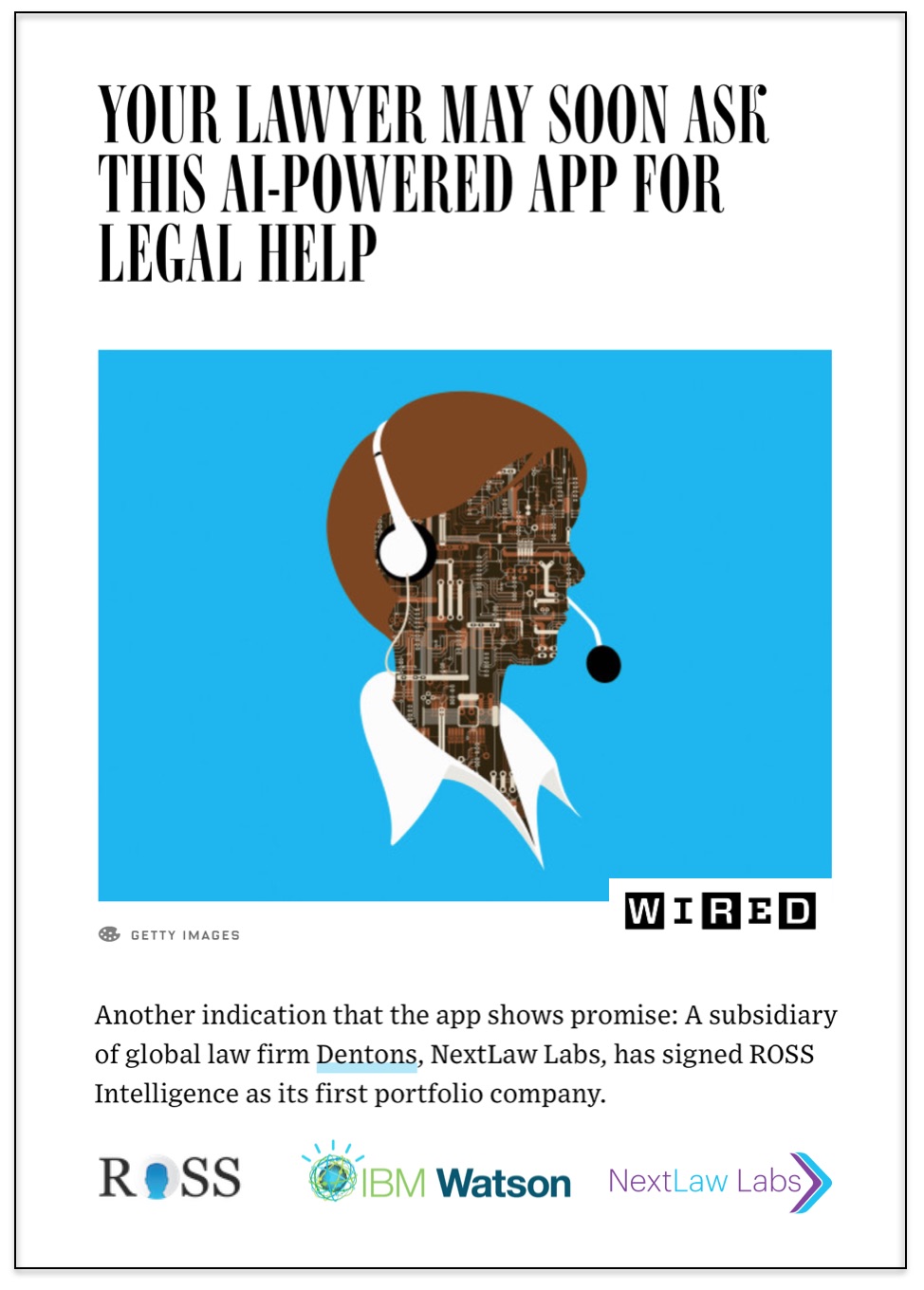 “I thought back to that big problem lawyers face in their day-to-day work, and how it impacts regular people,” Ovbiagele tells WIRED. “I thought we should apply the capabilities of machine learning to tackle this problem and make things better for lawyers and for clients.”
“I thought back to that big problem lawyers face in their day-to-day work, and how it impacts regular people,” Ovbiagele tells WIRED. “I thought we should apply the capabilities of machine learning to tackle this problem and make things better for lawyers and for clients.”
“LegalRank can figure out which results get preferential results, whether that’s prioritizing a case that has more citations, knowing that a Supreme Court case should rank higher than a local decision, and other nuances.”
A subsidiary of (world’s largest) global law firm Dentons, NextLaw Labs, has signed ROSS Intelligence as its first portfolio company.
Full disclosure – I am a member of the advisory board of NextLaw Labs.
Teaching the Complex Systems Course @ University of Michigan ICPSR Summer Program in Quantitative Methods
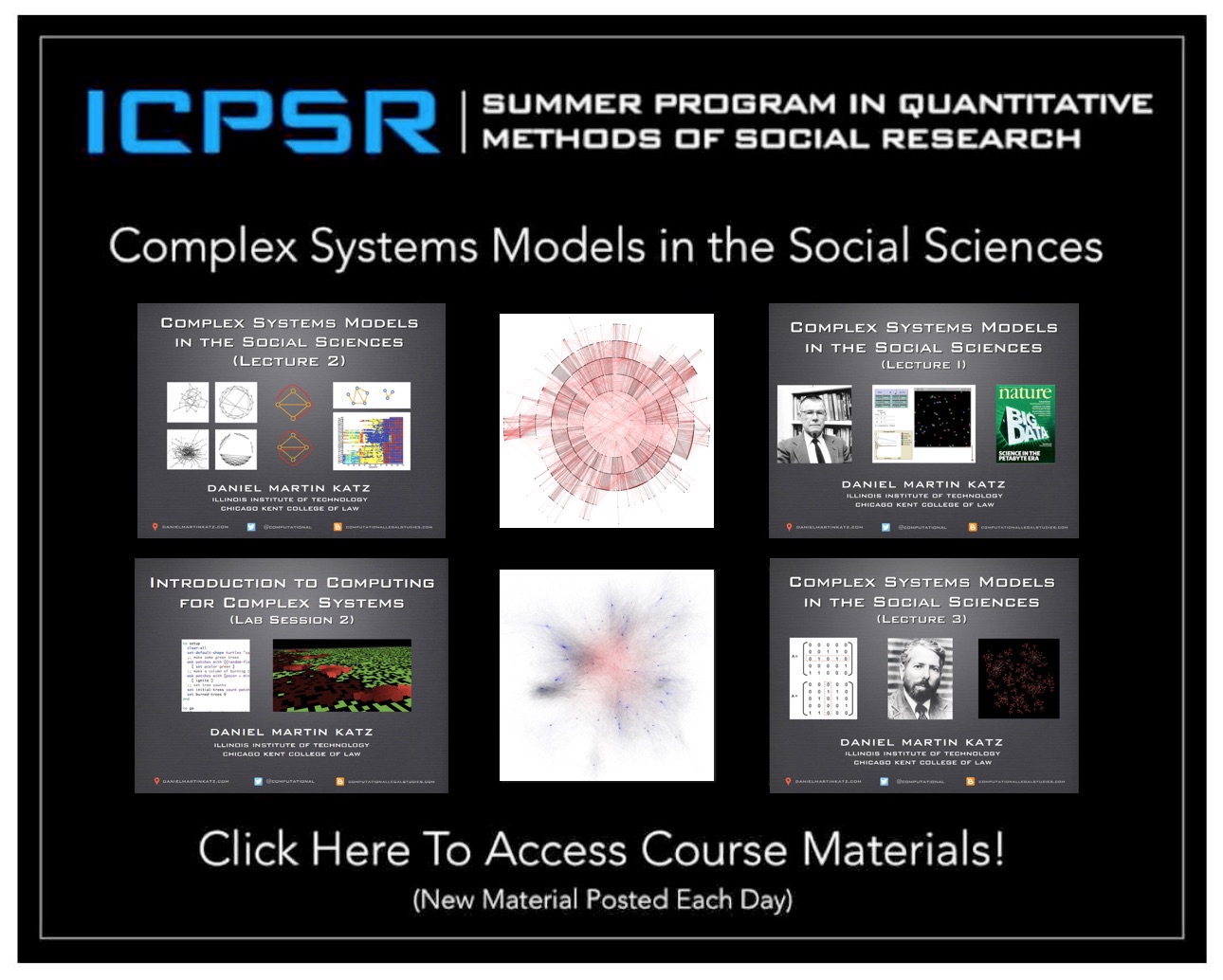 This upcoming week and next week I have the pleasure of teaching “Complex Systems Models in the Social Sciences” here at the University of Michigan ICPSR Summer Program in Quantitative Methods. The field of complex systems is very diverse and it is difficult to do complete justice to the range of scholarship conducted under this umbrella in a short survey course. However, we strive to cover the canonical topics such as computational game theory and computational modeling, network science, natural language processing, randomness vs. determinism, diffusion, cascades, emergence, empirical approaches to study complexity (including measurement), social epidemiology, non-linear dynamics, etc. Click here or on the image above to access my course materials!
This upcoming week and next week I have the pleasure of teaching “Complex Systems Models in the Social Sciences” here at the University of Michigan ICPSR Summer Program in Quantitative Methods. The field of complex systems is very diverse and it is difficult to do complete justice to the range of scholarship conducted under this umbrella in a short survey course. However, we strive to cover the canonical topics such as computational game theory and computational modeling, network science, natural language processing, randomness vs. determinism, diffusion, cascades, emergence, empirical approaches to study complexity (including measurement), social epidemiology, non-linear dynamics, etc. Click here or on the image above to access my course materials!
15th International Conference on Artificial Intelligence & Law — San Diego (Final Day for Priority Registration)
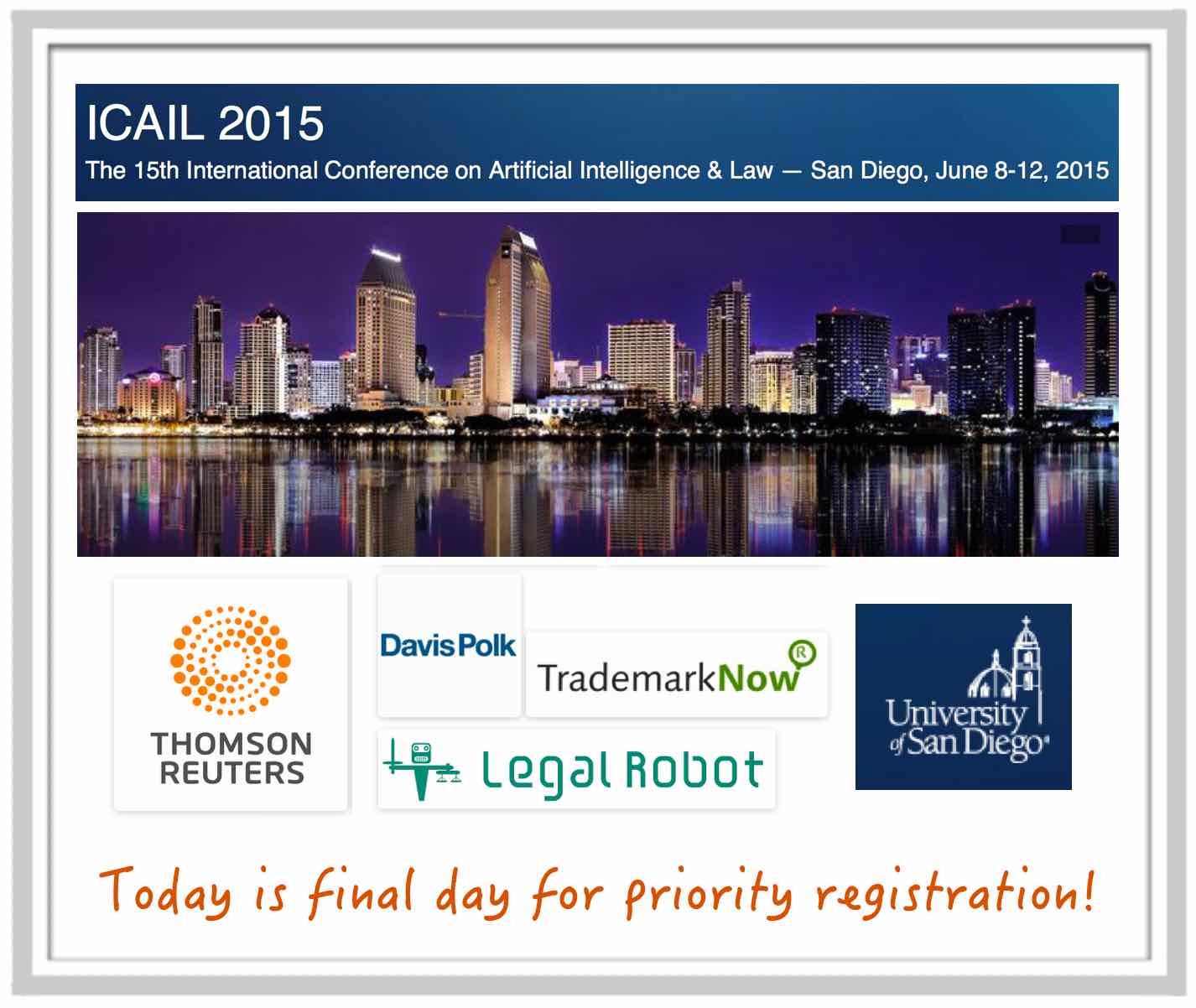 As a member of the local organizing committee, I just wanted to mention that today is the final day for priority registration for the International Conference on Artificial Intelligence & Law in San Diego.
As a member of the local organizing committee, I just wanted to mention that today is the final day for priority registration for the International Conference on Artificial Intelligence & Law in San Diego.
LexPredict Hackathon Challenge – Extracting Simple Contract Metadata
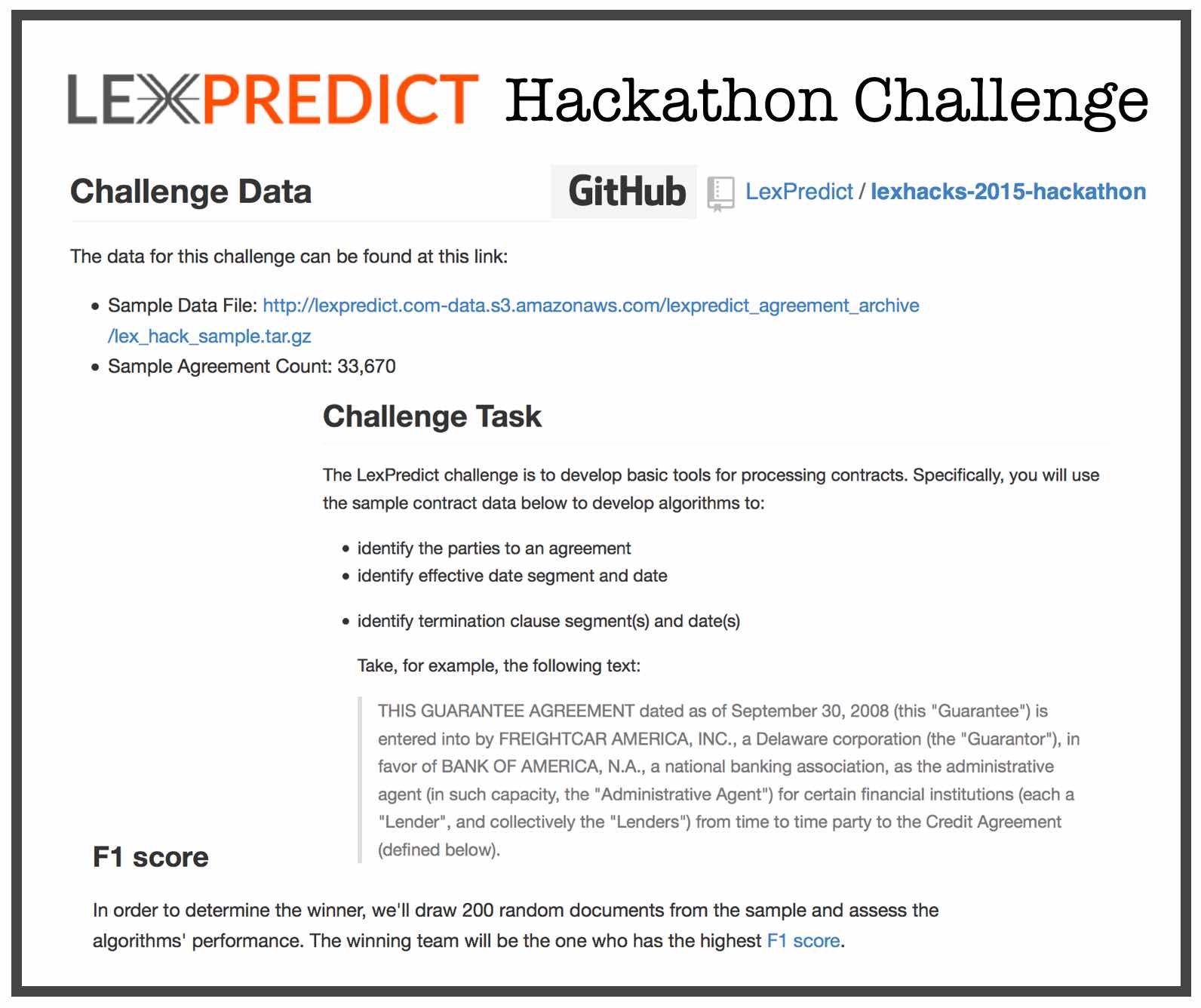 Beyond the specific prize attached to upcoming hackathon event, we welcome anyone who (for fun) would like to take a crack at this challenge.
Beyond the specific prize attached to upcoming hackathon event, we welcome anyone who (for fun) would like to take a crack at this challenge.
Email us directly (Daniel Martin Katz or Mike Bommarito) – if you would like to work on this challenge.
Our LexPredict Challenge is an opportunity to develop basic tools for processing contracts.
Specifically, you will use the sample contract data below to develop algorithms to:
(1) identify the parties to an agreement
(2) identify effective date segment and date
(3) identify termination clause segment(s) and date(s)
At LexPredict, we have built this simple (and other more complex) technology for use in commercial applications. This is an opportunity to use this challenge to produce open source content which we can be used by all (including in the Legal Analytics Course).


